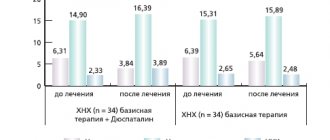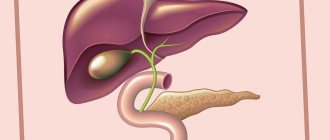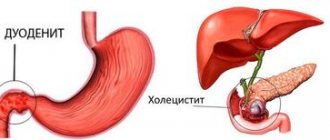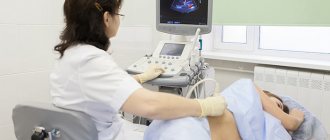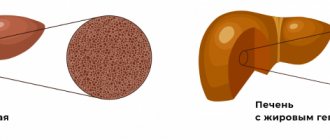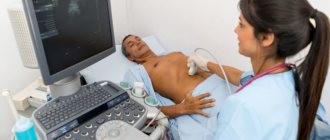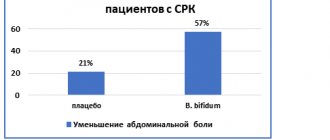The IMMA clinic provides medical services and helps get rid of many diseases, including diseases of the gastrointestinal tract. To do this, we use modern diagnostic equipment, which helps to quickly make an accurate diagnosis, and we also cooperate with experienced and professional doctors who will not only promptly identify a functional intestinal disorder, but also relieve a dangerous illness.
What it is?
Functional gastrointestinal disorder is a separate type of pathology associated with disturbances in the process of digestion of food. It can appear in almost anyone, regardless of age or gender.
The reasons why the disease occurs are divided into two categories: biological predisposition and environmental features leading to this pathology. The latter include stress, poor nutrition and the like.
Symptoms of a functional bowel disorder include:
- Spasms
- Flatulence
- Diarrhea
- Constipation
Often the disease entails the appearance of other, no less acute ailments. Thus, women may experience inflammation of the genitourinary system, and both sexes may develop chronic diseases of the stomach and intestines.
Important! To reduce the risk of developing this disease, it is worth limiting the provoking factors. The latter includes the consumption of spicy, fried or salty foods, it is necessary to eat in small portions, move after eating, and sleep with an elevated headboard.
Causes of functional disorders of the gastrointestinal tract
There are 2 main reasons:
- Genetic predisposition. FGITs are often hereditary. This is confirmed by the frequent “family” nature of violations. During examinations, genetically transmitted features of the nervous and hormonal regulation of intestinal motility, the properties of receptors in the walls of the gastrointestinal tract, etc. are found to be similar in all (or across generations) family members.
- Mental and infectious sensitization. These include acute intestinal infections, difficult conditions of a person’s social environment (stress, misunderstanding from loved ones, shyness, constant fears of various nature), physically difficult work, etc.
Diseases in children
In children, symptoms of functional bowel disorder manifest differently and are stronger. In particular, even the most common diarrhea in children can lead to a serious condition for the child and require hospitalization. If this does not happen, the consequences of diarrhea are still much worse tolerated compared to an adult patient.
In children and adults, damage to the intestines equally strongly affects the functioning of the immune and endocrine systems, which can lead to lethargy, apathy, and frequent colds and other diseases.
Important! In childhood, it is recommended to undergo regular preventive appointments and examinations. Even if they have not yet fully manifested themselves, their detection and elimination at an early stage can seriously make life easier in the future.
Treatment of functional gastrointestinal disorders
Complex treatment includes dietary recommendations, psychotherapeutic measures, drug therapy, and physiotherapeutic procedures.
General recommendations for constipation: abolition of constipation medications, foods that contribute to constipation, intake of large amounts of fluid, food rich in ballast substances (bran), physical activity and elimination of stress.
If diarrhea predominates, the intake of coarse fiber into the body is limited and drug therapy (imodium) is prescribed.
If pain predominates, antispasmodics and physiotherapeutic procedures are prescribed.
Diagnostics
If functional disorders of the gastrointestinal tract acquire chronic forms, it is necessary to conduct an examination by a gastroenterologist, which will help to find out the cause of poor health.
You may also need to consult other specialists. For example, a nutritionist who will help you choose the most suitable diet.
Diagnostics proceeds in several stages. The first is an initial visual examination of the patient and collection of anamnesis.
Then you need to undergo an examination. These include stool and urine analysis, colonoscopy, gastroscopy, abdominal ultrasound, computed tomography and a number of other procedures.
After diagnosis, treatment for functional gastrointestinal disorders is prescribed. Psychotherapists, physiotherapists, endocrinologists, and nutritionists are involved in treatment.
Medicinal methods of treatment of the disease are prescribed, special attention is paid to the rules of food intake, physical activity, work and rest schedule. Only compliance with all these components can guarantee relief from the disease.
Functioning of the digestive organs
Each organ of the gastrointestinal tract performs its own function.
Impaired functioning of these organs indicates that the digestive tract is not functioning properly, but the presence of any tumors is not observed (this includes various formations, serious pathologies, and infection).
To clearly understand what exactly provokes the appearance of these diseases, it is necessary to know their nature. In other words, it is worth finding out what becomes the basis for their appearance. Functions of the gastrointestinal tract:
- Motor function. With its help, the process of chewing food occurs, after this swallowing, the movement of food through the gastrointestinal tract, after which the remaining food that has not been digested is moved through the intestine to the exit.
- Secretory function. Its task is to produce the required amount of juices that are necessary for the functioning of the gastrointestinal tract: saliva, gastric juice along with hydrochloric acid, pancreatic juice, bile, and intestinal juice.
- Excretory function. When this function is assisted, the necessary metabolic products (ammonia, urea, various salts of heavy metals, etc.) are produced and released into the gastrointestinal tract, which will then be excreted from the body.
- Suction function. It is based on helping beneficial substances penetrate the blood and lymph.
With the normal functioning of the organs of the digestive system, all organs have their own tasks, that is, they must carry out certain processes. However, there are times when one of the organs stops working at a given pace and this leads to unpleasant symptoms beginning to appear, which include pain, improper processing of waste products, and others. In such a situation, a person has to deal with various diseases of the digestive system.
Prevention and healthy lifestyle
The lifestyle of a modern city dweller can hardly be called healthy or conducive to maintaining good health. That is why preventive measures are recommended.
Moreover, this is true for both children and adults.
To maintain the body in good condition, it is recommended to take care of your diet. Eliminate junk food from it, reduce the amount of fried and salty foods. Try to purchase products from trusted manufacturers and pay attention to the composition.
It is also recommended to move as much as possible. This improves the general condition of the body.
The most common functional diseases
Heartburn is characterized by a burning sensation in the esophagus.
These include gastroesophageal reflux disease. It manifests itself as heartburn.
Extraesophageal emissions that come from the stomach into the esophagus include chronic bronchitis, chronic reflux laryngitis and pharyngitis, stages of pneumonia, pain that is observed in the chest area on the left.
In this case, everything contained in the esophagus can enter the bronchial tree. The most developed functional disorder of the stomach is considered to be non-ulcer (that is, functional) dyspepsia syndrome.
A person feels pain in the epigastric region, and also feels discomfort in the epigastrium. This indicates that there is a violation of the motor function of the upper digestive system.
The most common disease is irritable bowel syndrome. In this case, it manifests itself as constant bloating, problems with bowel movements, and pain.
Pathomorphology
FGR is characterized by the absence of any endoscopic or morphological changes in the gastric mucosa. However, histochemical examination and electron microscopy may reveal changes that reflect microstructural disorders at the subcellular level. Sometimes signs of altered functional activity of cellular elements are found: hypertrophy of parietal cells, increased activity of mucoid cells, increased RNA content in the main cells, increased activity of redox enzymes in the cytoplasm, increased number of mitochondria. This corresponds to a hypersecretory state of the stomach; there may be a change in the ratio of endocrine cells.
Pathogenesis
The basis of primary functional disorders associated with nutritional reasons is a disruption of the normal daily rhythm of gastric secretion, excessive stimulation of the production of gastrointestinal hormones, and a direct irritating effect on the mucous membrane. Smoking can stimulate the production of gastrin, thereby increasing gastric secretion. Overheating, helminthic infestations, heavy physical work, overwork, as a rule, lead to a decrease in the function of the main gastric glands and incoordination of motor function. Neuropsychiatric disorders have an effect through a complex mechanism of neurohumoral regulation of gastric function, through the hypothalamic-pituitary system and autonomic innervation.
The pathogenesis of secondary (endogenous) VGF may be a consequence of the increased stimulating effect of the vagus nerve on the secretory and motor functions of the stomach, impaired spinal innervation, as well as pathological visceral-visceral connections.
Most of the symptoms of gastrointestinal tract are caused by disturbances in the motor function of the stomach, the variants of which are different. There may be a hypokinetic state of the distal stomach, which contributes to a delay in the evacuation of contents into the duodenum, mainly dense chyme, while the liquid is evacuated normally. This explains the feeling of heaviness in the epigastrium after eating. The cause of pain, sometimes nausea and vomiting can be a disturbance in the rhythm of gastric contractions, paroxysmal and strong contractions, and sometimes reverse peristalsis. Impaired motility of the duodenum is also of particular importance in the development of gastrointestinal tract, since it is this section that carries out the hormonal regulation of gastric function. Duodeno-gastric reflux and gastric emptying disorders are also a consequence of duodenal dysmotility. Motor disorders depend on the work of the sphincters: cardiac and pyloric. The nature of gastric secretion, in particular its increase, can also contribute to the appearance of some clinical symptoms: heartburn, pain.
What symptoms can be dangerous?
So-called red flag symptoms indicate organic pathology. This:
- age over 55 years;
- weight loss;
- progressive swallowing disorder;
- persistent vomiting;
- signs of gastrointestinal bleeding (vomiting with blood or so-called coffee grounds, black stools);
- family history of cancer.
Additional symptoms include treatment failure, need for nonsteroidal anti-inflammatory drugs (NSAIDs) and aspirin, ferrodeficiency anemia, cough and nocturnal shortness of breath, changes in bowel movements, abdominal bloating, lymphadenopathy, and chest pain.
How to fight
In order to begin treatment, it is necessary to clearly find out what the problem is. It is necessary to completely eliminate the possibility of organic deviations. The solution to this issue is also influenced by the fact that there are many symptoms and therefore a large number of diseases.
To remove unpleasant sensations, you must in any case adhere to a diet, adjust your daily routine, and give up bad habits. If the functioning of the nervous system is disrupted, then it is worth taking antidepressants. To improve the functioning of the digestive system, it is necessary to take prokinetic drugs, as well as drugs that should eliminate the possibility of constipation.
